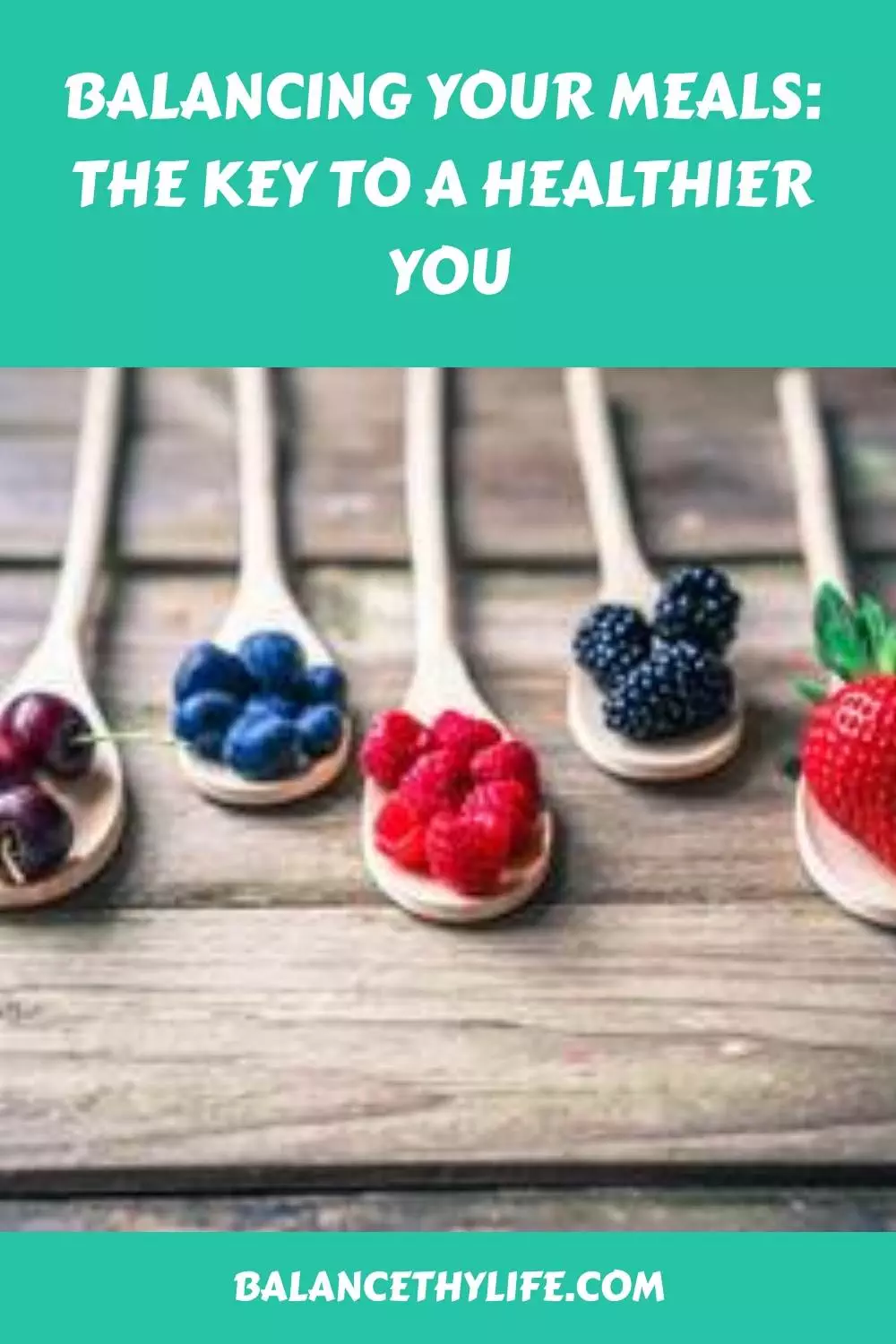Eating healthy is not just about eating less, but also about choosing the right foods that provide your body with all the nutrients it needs. A balanced diet can help you maintain a healthy weight and reduce the risk of chronic diseases such as heart disease, type 2 diabetes, and some types of cancer. Here are five key points on how to balance your meals for better health:
1. End Sugar Addiction – One of the biggest challenges in achieving a balanced diet is reducing sugar intake. Processed foods, sugary drinks, and snacks are often high in added sugars which contribute to obesity, tooth decay, and other health problems. To break free from sugar addiction, start by gradually reducing the amount of processed foods you consume and replacing them with whole foods like fruits, vegetables, lean proteins, and complex carbohydrates.

2. Balanced Diet Food List – A balanced diet includes a variety of food groups including fruits, vegetables, grains, protein sources, dairy products, and healthy fats. Some examples of balanced diet foods include salmon or tuna fish, quinoa or brown rice, almonds or walnuts, Greek yogurt, milk, cheese, and eggs. Make sure to choose fresh or frozen produce instead of canned goods since they tend to have higher sodium content.
3. The balanced Plate – The USDA has developed a simple tool called MyPlate to help people make informed choices when it comes to their diets. The plate is divided into four sections representing different food groups: fruits, vegetables, grains, and protein sources. Half of the plate should be filled with veggies while the rest should consist of equal portions of grains and protein sources. Fill up on water and limit sugary drinks to keep hydrated throughout the day.
4. Benefits of a Balanced Nutrition – Eating a balanced diet provides numerous benefits for both physical and mental well-being. It helps regulate blood pressure, cholesterol levels, and blood sugar levels, reduces inflammation, improves digestion, boosts immunity, and promotes healthy brain function. Additionally, eating a variety of colorful fruits and vegetables ensures you get enough vitamins and minerals essential for good health.

5. Conclusion – Achieving a balanced diet requires effort and commitment, but the rewards are worth it. Start small by making one change at a time until you develop healthy habits that last a lifetime. Remember, moderation is key! Don’t deprive yourself of favorite foods completely; simply enjoy them in moderation as part of a balanced diet.









